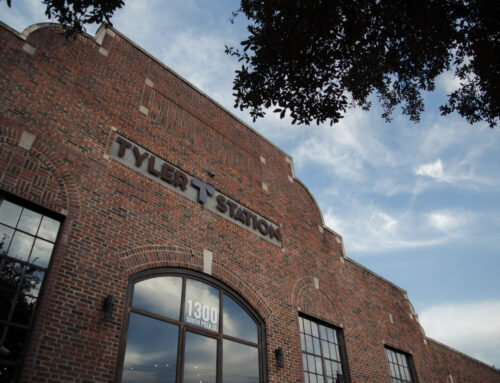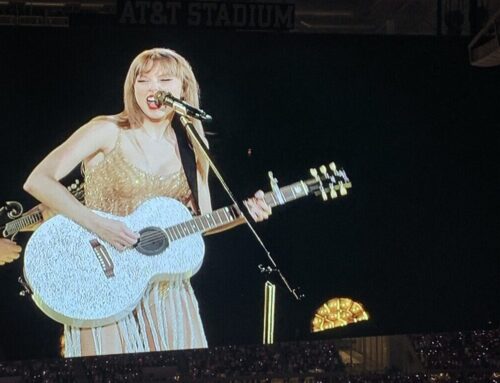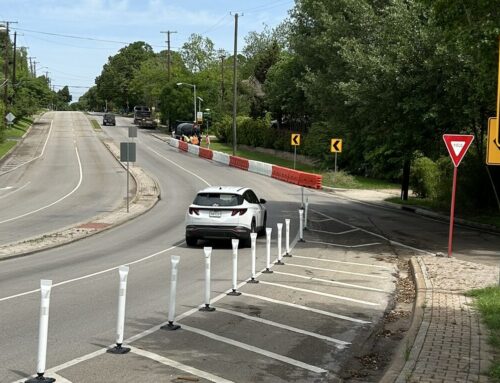As the November cover story noted, Temple Emanu-El — like many other religious institutions — has experienced a decline in its young adult population in recent years, and temple leaders have spent quite a bit of time and effort focusing on how to retain this generation. They think they’ve found one of the secrets:
"The big joke is, you know, beer," says Mimi Zimmerman, the temple’s young adults coordinator. Whether it’s a Tu B’Shevat Seder and wine tasting or just a casual night of burgers and beer, young people are showing up. But they stick around for other reasons.
One is Temple Emanu-El’s new dues structure for young adults. (The marketing tagline, "All kinds of Jews. All kinds of dues," is pictured.) All temple members pay a set amount of annual dues as part of their membership, but "if you are a young adult, someone between 21 and 39, you can join temple for your first year at a voluntary amount of your choosing," Zimmerman says. After that, "there is a dues structure just for this age range, so that those dues were dropped drastically from what just the average member of temple gives."
Since the new dues structure was implemented, the temple has lost only one or two young adults for financial reasons, Zimmerman says, whereas before, dues were "one of the biggest distractions for young people joining synagogues," she says. The voluntary amount for the first year and discounts in subsequent years allows them "a chance to make their way in," she says. And they’re doing even more than what’s required — some young adults have joined Temple Emanu-El’s campaign drive.
Additionally, Zimmerman has found that social justice programs are attracting quite a few young adults. Their next one will be a Christmas day mitzvah project (mitzvah loosely translates to "good deed") at The Bridge, where young adults from Temple Emanu-El, other synagogues and the Jewish Foundation will relieve regular volunteers so that they can spend the holiday with their families.
The young adults do quite a few "mitzvahs and mimosas" events — "you can see the theme carrying on here," Zimmerman jokes. She expected that the beer-themed events and the social justice-themed events would cover the broad interests among the 20- and 30-something crowd; what Zimmerman didn’t expect is that she would often see the same people at both, and that the social justice events would attract so many people.
"I thought it would be a draw to people not that interested in the beer," she says. " I think people are looking for meaning, and that’s a little more meaningful than a happy hour. It sort of tells you that people are looking to do something rather than just showing up."





